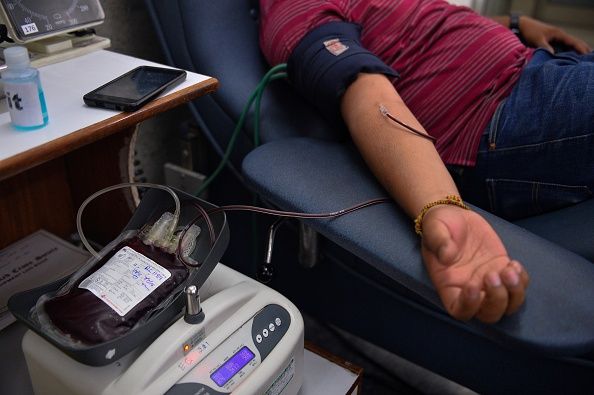Brain hemorrhage may be transmitted through blood transfusions, a new study suggests.
Cerebral amyloid angiopathy, a cause of spontaneous hemorrhage, could be transmitted through donated blood, researchers said in a study, published in Jama Network. However, it is highly unlikely that people would suffer a brain hemorrhage as a direct result of receiving donated blood.
CAA, a type of cerebrovascular disorder that causes the piling up of proteins in the small blood vessels within the brain, is the common cause of many recurring and spontaneous brain hemorrhages.
Spontaneous intracerebral hemorrhage is a blood clot that develops in the absence of trauma or surgery.
Previous studies suggest that CAA can be transmitted through procedures like neurosurgery and growth hormone treatment.
In the latest study, researchers looked into data from more than a million patients from a Swedish-Danish transfusion database, which holds records of blood donors and patients who had blood transfusions since the 1970s.
“In this exploratory retrospective cohort study, which included 759,858 patients in Sweden and 329,512 patients in Denmark, receiving red blood cell transfusions from donors who later developed multiple spontaneous intracerebral hemorrhages was significantly associated with an increased risk of developing spontaneous intracerebral hemorrhage compared with receiving a transfusion from donors without subsequent intracerebral hemorrhage,” the researchers wrote.
The study showed that only 0.1% of the donors subsequently suffered recurring brain hemorrhages.
“Blood transfusions are relatively common, which makes possible negative effects an important public health issue. However, in this case, it’s very unlikely that you’d suffer a brain hemorrhage from something transmitted through a transfusion,” the study’s last author Gustaf Edgren said in a news release.
The researchers also found that patients who suffered recurring brain hemorrhages after receiving blood from donors who had brain hemorrhages were more than twice as likely to suffer brain bleeding themselves.
To further confirm the findings and to identify aberrant proteins associated with CAA, the research team plans to evaluate the samples from the Danish Blood Donor Study biobank.
“This study does not demonstrate causality, so the observed increase in risk could depend on other factors. More research is needed to confirm our findings and understand the potential underlying mechanism,” said Jingcheng Zhao, the first author of the study.
Researchers hope the study adds to the evidence that CAA can be transmitted between individuals, a finding that has consequences in several fields.
Published by Medicaldaily.com


